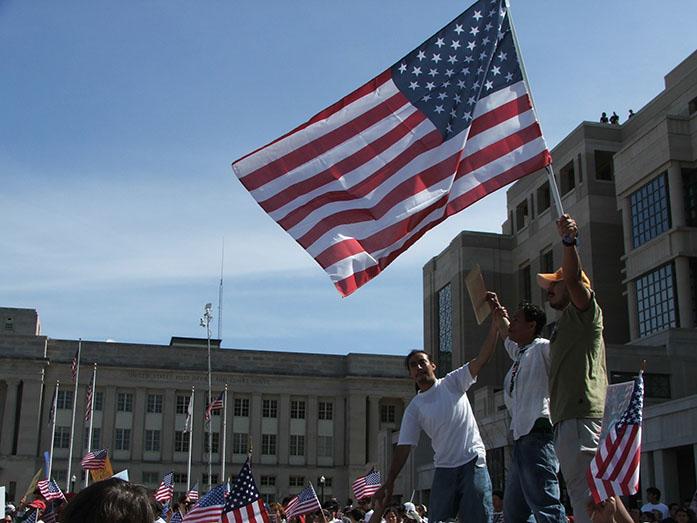The rapid influx of refugees into Western Europe has proven to be nothing less than a global crisis that has put a strain on governments and world leaders ability to adequately manage the situation. The task of providing asylum to all those displaced by the strife and bloodshed within the Middle East comes with no easy solution, but it is imperative that systems be put in place that will accommodate the staggering amount of displaced migrants while ensuring the infrastructure of the accepting country is left intact.
Finding a middle ground that allows for the seamless introduction of a spike in population is obviously no easy feat, but that does not excuse putting into place measures that demote those genuinely seeking asylum into second-class citizens. In Cardiff, the capital of Wales, those seeking asylum are being ordered to wear “brightly colored wristbands” that are supposed to indicate approved access to meals, but also distinguish them from the rest of the population. The wristband system may have innocuous intentions, but utilizing such a method carries the potential of further separating an already marginalized section of society from the general population.
This is not an isolated issue with similar problems springing up elsewhere in Europe such as Middlesbrough in the United Kingdom where there have been reports of the doors of asylum seeker’s homes all being intentionally painted red. Again the intention may not be to purposefully segregate asylum seekers from previous inhabitants, but that is an issue that must be kept in the forefront when imposing systems meant to relegate the new additions to a country. Being displaced from one’s native country is already traumatic and arduous enough without the increased scrutiny that would come about from being branded upon reaching potential asylum.
At the same time, it is not say that systems put in place to regulate the incoming migrant population are not necessities. It is simply to say that it is a process that must be managed with forethought in order to serve the best interests of all parties involved. French officials have announced that the terrorist group ISIS has had the capacity to “print legitimate-looking Syrian passports since at least last summer,” which makes heightened terrorism security unavoidable. While the growth of asylum seekers is a humanitarian crisis, it does not mean that we must forgo precautions. Additionally, while many of the migrants are displaced refugees, many too are simply people seeking a better way of life. The social-welfare safety net and economic opportunity that many European countries provide is an attractive prospect for a wide swath of people, not just those whose homelands have become uninhabitable.
Balance must be struck between goodwill and security to ensure that the spread of terrorism does not come about as a result of countries willing to do the right thing and offer assistance to those in need. The crisis at hand is obviously not the preferred reality, but it is the one presented to us. Compromises must be found and made without compromising security, prosperity, or undermining the basic humanity we are all entitled to.



